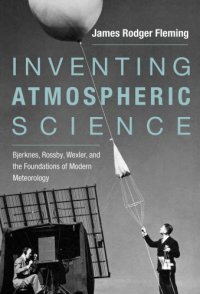
Ebook: Inventing Atmospheric Science: Bjerknes, Rossby, Wexler, and the Foundations of Modern Meteorology
Author: James Rodger Fleming
- Tags: Climatology, Earth Sciences, Science & Math, Rivers, Earth Sciences, Science & Math, History & Philosophy, Science & Math, Weather, Environment, Science & Math
- Year: 2016
- Publisher: MIT Press
- Language: English
- pdf
In the early twentieth century, Bjerknes worked to put meteorology on solid observational and theoretical foundations. His younger colleague, the innovative and influential Rossby, built the first graduate program in meteorology (at MIT), trained aviation cadets during World War II, and was a pioneer in numerical weather prediction and atmospheric chemistry. Wexler, one of Rossby's best students, became head of research at the U.S. Weather Bureau, where he developed new technologies from radar and rockets to computers and satellites, conducted research on the Antarctic ice sheet, and established carbon dioxide measurements at the Mauna Loa Observatory in Hawaii. He was also the first meteorologist to fly into a hurricane — an experience he chose never to repeat.
Fleming maps both the ambitions of an evolving field and the constraints that checked them — war, bureaucracy, economic downturns, and, most important, the ultimate realization (prompted by the formulation of chaos theory in the 1960s by Edward Lorenz) that perfectly accurate measurements and forecasts would never be possible.